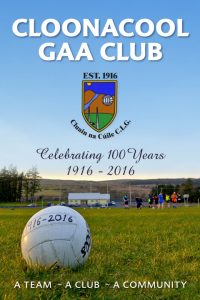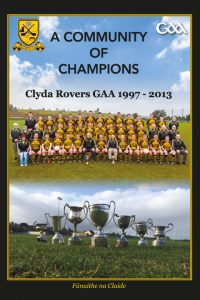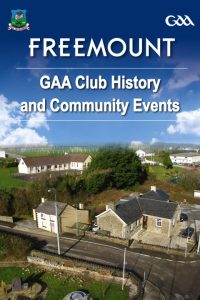 Why GAA Club Stories Matter
Why GAA Club Stories Matter
Lots of groups or organisations vie for the title of “backbone of the country”. Sometimes it doesn’t matter whether you agree or disagree with them. What matters is that there are some organisations who can lay claim to being a vital part of their local community, whether it’s in the Men’s Shed movement, the ICA, the Youth, Women’s or Community Organisation, or those tidy towns people out in wind and rain, making the place look better. The Gaelic Athletic Association is one of those groups. The GAA’s place in the culture of the city, countryside, town or suburb is undeniable.
Anyone who knows that their county colours matter, also knows that the heartbeat of the Gaelic Athletic Association is the local club. During 2016 we’ve been celebrating a lot of the “ordinary” stories of 1916 in a way we didn’t do before. Some of the history of that era has been lost. Thankfully a lot has been saved, in the letters and artefacts of the men, women and children who were involved or touched by the Rising. Stories of ordinary people matter. Over recent years GAA clubs have been looking back at their history and stories too, by creating written accounts of their clubs and their place in the cultural history of an area. It’s not just about a list of fixtures, results or who won or lost the trophies. It’s also about the people who volunteer at the gate, direct the traffic, paint their cars in the team colours and yes, it is also about the people who make the sandwiches and drive scores of children to training on rain soaked nights.
 Your local GAA club book can form a vital part in the cultural history of your area and the GAA itself. It can of course list achievements and the highs and lows. It can also form a vital resource for the future.
Your local GAA club book can form a vital part in the cultural history of your area and the GAA itself. It can of course list achievements and the highs and lows. It can also form a vital resource for the future.
If you are thinking about creating a book for your club, remember that its history is made up of your stories and memories and those of current and former players and members. Above all, get people involved and make sure you enjoy the process.
Tips for Writing Your Club’s Story
- Get your stats right. There will always be someone who can point out that the under 10s came second, three years in a row, not four.
- Talk to club members – as many as you can. They will have some great anecdotes. They will also be able to confirm or deny some of the stories from others!
- Use online resources. Talk to local papers about their GAA archives. They may have great content to share with you (you’ll need their permission to reproduce their content in your book).
- Your story of the club, should be just that, a story of all the club. Girls and women need to be represented within your story and not just as token gestures either.
- Place the story of the club in its cultural time. Maybe refer to world events or music of the time, to get the story in context.
- It’s about the people. Some of the best stories from your club will be about people who never put a shirt on, but are vital to the history and ethos of the club.
- Humour never goes amiss. If it’s funny, printable and won’t hurt or libel anyone, put it in!
- Get as many people involved as possible. Ask members for artefacts, photos or stories. Make sure the voices of young and old are heard in your history.
- Make sure you proofread and edit carefully before going to print.
- Most importantly – enjoy putting together a wonderful history of the club that means so much to you.
If you are thinking of creating a history of your GAA club, contact selfpublishbooks.ie and we will be delighted to help you get your GAA club book into print.




